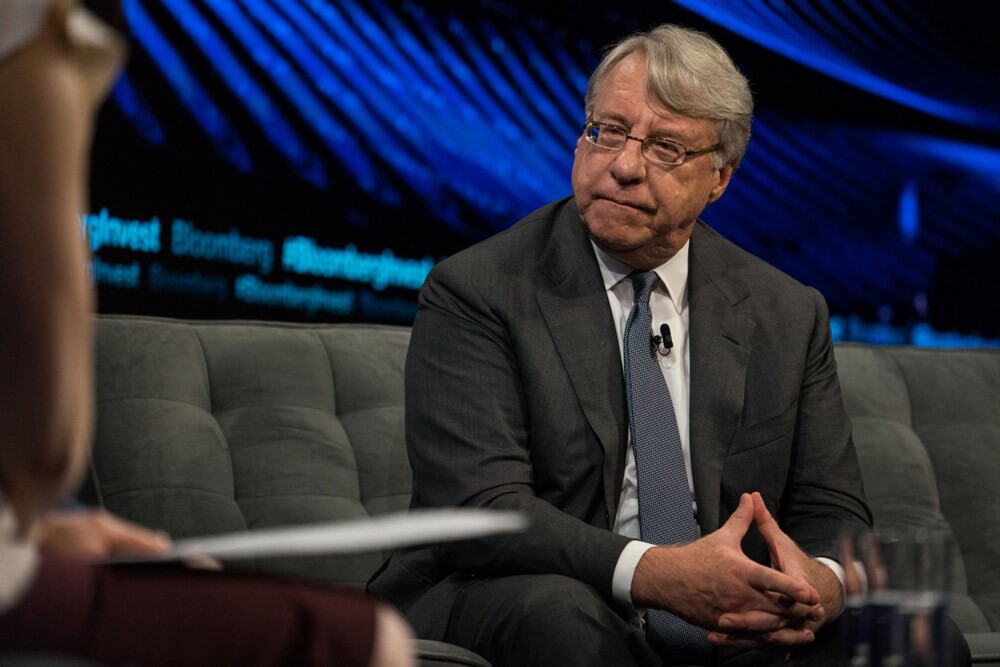If there’s any lingering doubt about how awful 2020 was for short sellers, recently released securities filings make the pain abundantly clear.
Jim Chanos’ Kynikos Associates and Jim Carruthers’ Sophos Capital — both of which started 2020 with around $1 billion in regulatory assets — ended the year a shadow of their former selves.
Chanos, arguably the most well-known short seller in the world, lost more than 50 percent of its assets last year. Kynikos ended 2020 with about $405 million in regulatory assets under management, down from around $932 million the prior year, according to annual ADV filings with the Securities and Exchange Commission.
The long bull market has punished Chanos for years. In 2018, when Institutional Investor profiled him, Kynikos ran just under $2 billion, having already lost almost three-quarters of his assets since the financial crash of 2008, when it ran $7 billion.
[II Deep Dive: How Jim Chanos Uses Cynicism, Chutzpah — and a Secret Twitter Account — to Take on Markets (and Elon Musk)]
Kynikos is heavily diversified, and runs several funds, including one that also goes long via indexes. Short positions rarely are more than 5 percent of the total portfolio. And his short-only fund, Ursus, is a small portion of the regulatory assets. It’s now only about $27 million, according to the ADV, down from about $59 million at the end of 2019.
That said, last year Chanos’s most notable loss was his Tesla short. Elon Musk’s electric car company skyrocketed by more than 700 percent last year, and Chanos — long a Tesla foe — had to scramble.
In January he told CNBC the firm had transformed his short into puts — a common strategy when short sellers are forced to cover their stock shorts. (This year, Tesla is down, but by just 3 percent.)
One bright spot for Chanos in 2020 was his Wirecard short. He told the Financial Times last summer that he made $100 million on that short when the German fintech company collapsed in scandal in June.
Sophos had an even more dramatic decline than Kynikos.
The firm started 2020 as the world’s largest short seller with $1.16 billion in regulatory assets under management. But by year end, the firm was winding down some positions and scaling back, as Institutional Investor previously reported. Sophos ended 2020 with $258 million, according to its ADV.
Carruthers, who ran the short book for Dan Loeb at Third Point before starting Sophos, launched his short-biased firm in 2014 with $200 million, including a seed investment from Yale University’s endowment.
Another short seller that couldn’t stave off the pain was Fahmi Quadir’s Safkhet Capital.
Last year Quadir told II that she had wagered 25 percent of the fund’s capital on its Wirecard short, which had been the largest contributor to the fund’s gains since launch in 2018.
That didn’t stop the bleeding at Safkhet, which ended 2020 with about $27 million, down from almost $85 million in regulatory assets under management at the end of 2019, according to its ADV filings.
It’s unclear how much of these declines were due to performance and how much was caused by redemptions.
Given the complicated way the regulatory assets under management are calculated for short sellers, the numbers themselves may be overstated when it comes to the actual capital these funds have under management.
Chanos, Carruthers, and Quadir did not respond to requests for comment.
One short seller said that many shorts got caught out last year by focusing on what he called “discretionary” and “story names,” like Tesla and other highflying tech stocks.
“Many short sellers were short biotech, and these stocks went up four fold,” he said. “None of these guys were short banks or energy.”
According to the short seller, sector choice was what mattered most in 2020. “Short tech or healthcare was terrible,” he said. “You wanted to be short energy and banks.”
But, he noted, “this year that has reversed completely.”







